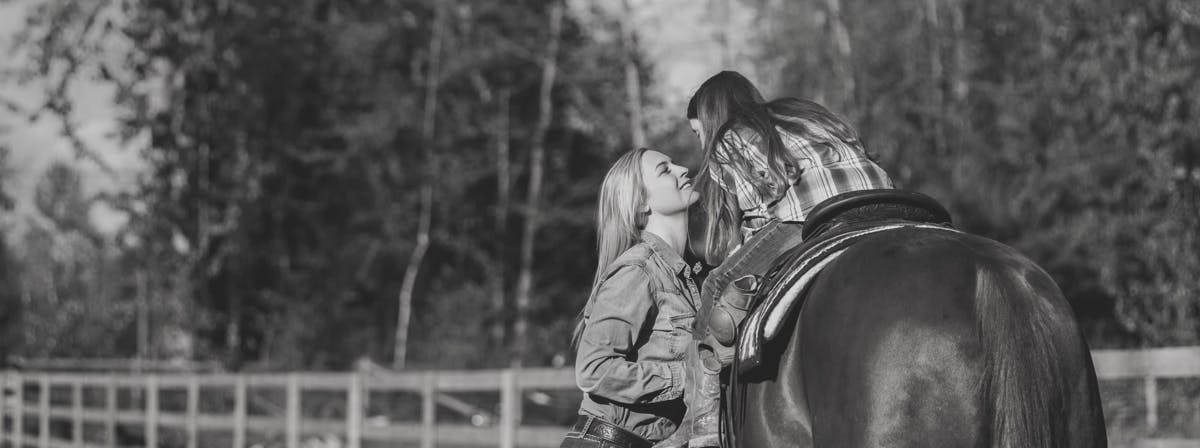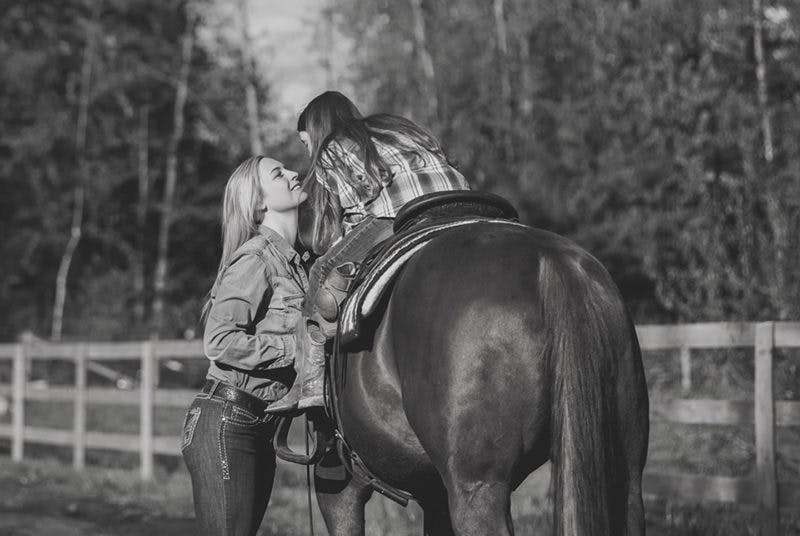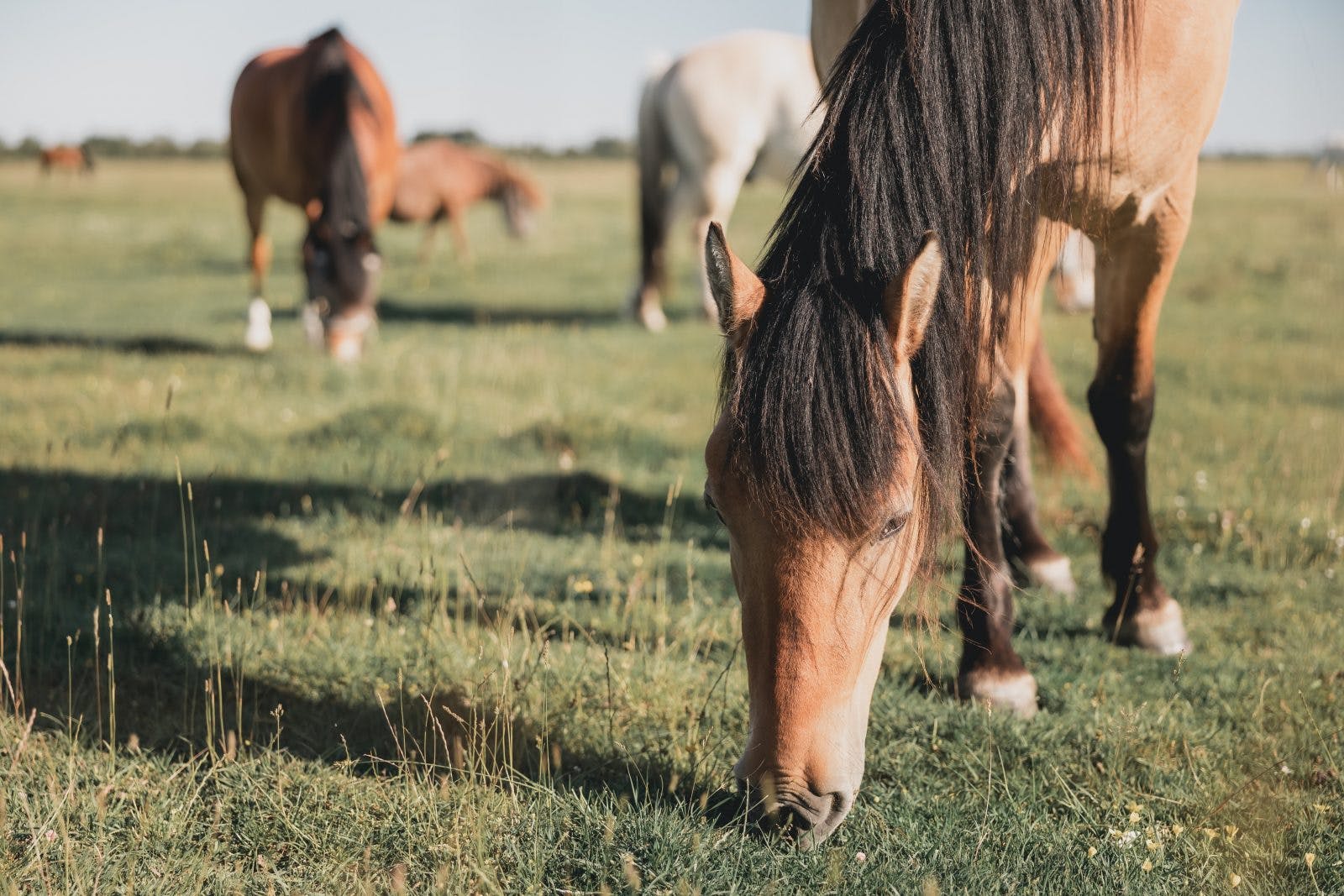Summer means longer, brighter, sun-filled days, but do you know what it also means? Your horse needs a little extra attention and TLC to handle the heat.
Here are my 6 favourite tips for keeping your horse happy and healthy this summer.
Water, Water, Water – One of the most important things to remember is to provide plenty of water for your horse or herd daily. Your horse will need a steady water supply because it can drink up to 10 gallons of water every day. Horses may become dehydrated and unwell if they do not drink enough water, which is simple when they become overheated.
If the water trough is low, check it every day (or twice if you have a larger herd that drinks more frequently) and fill it. Alternatively, if the pasture has an automatic waterer, make sure it’s working once a day. And, as always, wipe out any troughs that have been clogged with algae and have turned green.
Be Mindful Of Airflow – You may not think about it much if your horse is out in the pasture, but while in the barn, airflow is crucial. Your horse may head into the barn on sweltering days when attempting to avoid the sun or when a storm passes through, and they require shelter from the thunder and rain. Install stall and aisle fans, ensuring they’re in good operating order, correctly situated or mounted, and the wires aren’t accessible. Stall fans have the bonus of acting as a fly repellent.
You’re Not The Only One Who Needs Sunscreen – Keep a tube of sunscreen with an SPF of 30 or higher in the stable and apply it to both you and your horse! Horses with white markings on their faces (or other body parts) are more likely to get sunburned, so sunscreen should be applied frequently. If a horse’s face is burned, you’ll see red areas and peeling skin, which can develop into sores that can become infected if not treated promptly. If a horse has a severe sunburn, you may need to put a UV-protective fly or long mask on them or keep them in the stable during daylight hours.
Getting The Right Fit – Because of the drier terrain, summer riding generally involves firm footing, which is taxing on the horse’s legs. Splint boots and polo wraps help protect and support your horse’s legs while working. Wrapping your horse’s legs for a few hours or overnight to help minimize swelling and provide well-deserved rest and protection after a hard workout or trail ride is also a good idea. Be careful not to trap sweat next to the horse’s skin, and don’t leave the wraps on for too long or when the animal is still ‘hot.’
Shoo Fly – If your horse is bothered by flies, hose them off, then turn them out while wearing a fly sheet. The water serves a double benefit of cooling your horse and sending the flies away for a moment, while the light mesh covering keeps flies away from delicate regions on their bodies. If your horse wears a fly mask, check underneath it every day to ensure they haven’t hurt their face or eyes. Keep the mask clean and hose it down if it gets dirty.
Chill Out – If your horse does become overheated, you must immediately and safely cool them down. Spray a steady spray of cold water on the horse’s head, back, neck, rump, and legs, and continue until the horse is cool. If your horse is particularly hot, such as when their rectal temperatures are over 105 degrees Fahrenheit, you can add ice to the water to help them cool down faster.
According to research, using ice to cool a hot horse is safe, and ice baths help reduce core body temperature and pulse rates after intense activity. Always apply ice water to areas where the blood vessels are more evident, such as the head, neck, back, and rib area, rather than the hind end (big gluteal muscles). Do not cover it with a sheet or blanket when attempting to cool the horse, as blanketing prevents sweat from evaporating from the skin.
Hopefully, these simple tips will help keep your horse safe, happy, and healthy over the long and hot summer months. Since prolonged exposure to high temperatures can result in heat stress, heatstroke, and problems such as dehydration, muscle spasms, and colic, you’ll want to make sure you never reach that point.
As always check out my blog for more horse-related information, or check out some recent Langley area areas of interest!
Thinking of buying or selling real estate in the Fraser Valley? Let’s talk!



